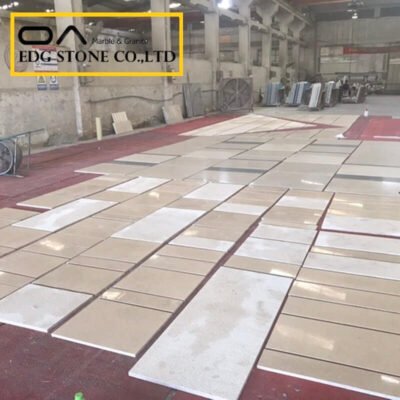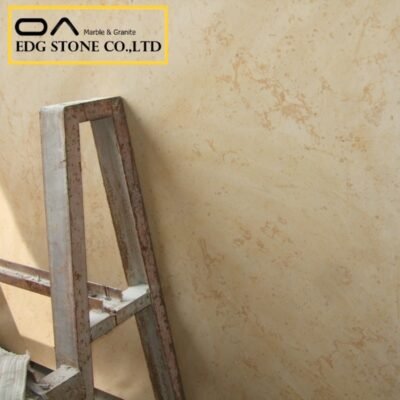Limestone is one of the oldest sedimentary rocks found on earth and is known to be formed and strong. This material has been used for construction, industrial, and even decorative purposes throughout history. Nowadays, limestone can be found in varying parts of the world. While some regions use this rock for making buildings, others use it for arts and crafts. However, how strong is limestone in comparison with other stones? With this article, we will look at the formation of limestone, its compressive properties, and how its usage in construction impacts the strength and durability of the limestone.

1. Limestone formation process
- 1. Limestone formation process
- 2. Composition of Limestone Rock And Its Strength Properties – Part II
- 3. Limestone Compressive Strength: Key to Durability
- 4. A Formidable Advantage of Limestone Aggregate in Concrete: Its Strength
- 5. A Limitation of Limestone: Its Tensile Strength
- 6. Limestone: Its Multifunctional Role in Construction
- 7. About Us: One of the Best Leading Limestone Suppliers
The primary processes which lead to the formation of limestone involve remains of marine organisms like shells, coral, and other small organism. Over millions of years, these life forms lie on the sea floor, gradually forming the compacted rock. The sedimentary process yields a stone containing a rich amount of calcium carbonate. Understanding the formula helps in understanding the properties of limestone,e with strength being one of them.
Through evaporation, limestone can further increase its strength and form in specific locations like caves where mineral-rich water is deposited infrequently. Such types of formations are recognizable due to their fine grain structure and increased durability.
2. Composition of Limestone Rock And Its Strength Properties – Part II
The different types of limestone rocks have different types of minerals that compose them, thus having a different calcium carbonate level. Because of this, the compressive strength of limestone is highly correlated with its composition. Since the limestone contains higher levels of calcium carbonate, its compressive strength increases. Generally, limestone contains low tensile strength and is suited for compressive applications. Unlike other forms of limestones, some tend to have lower compressive strength, which ranges from 1,500 psi to 3,000 psi, depending on the minerals within it.
Some types of limestone tend to be soft and highly carved, while others are very dense and tough, Thu,s are more suitable for structures that require stronger and tougher materials. Age, text, and mineral content features individually and together greatly influence the final strength of limestone rock.
3. Limestone Compressive Strength: Key to Durability
Limestone compressive strength is assessed concerning different metrics, for example, measuring its pound per square compress, or psi. Even so, the limestone’s compressive strength largely depends on its mineral content, density, and the amount of pressure it faces during formation. Limestone’s compressive strength is typically 2000 psi, but quality high limestone rich in minerals can have values up to 4000 psi.
These, along with different factors, make limestone useful in construction projects that are demanding in nature, for example, in foundation work and road construction. This aesthetic value, along with the fact that limestone performs well under pressure, makes it desirable for construction projects.

4. A Formidable Advantage of Limestone Aggregate in Concrete: Its Strength
The use of limestone aggregates in concrete is preferred in a concrete structure as it adds to the strength and improves the workability of the material. Incorporating ground limestone as an aggregate in concrete improves the weathering resistance of concrete while simultaneously increasing its density and compressive strength.
The environmentally friendly nature of limestone as an aggregate also makes it cost-effective and abundantly available. Concrete mixes consisting of limestone aggregates are known to be more durable, especially in cases of exposure to harsh weather conditions.
5. A Limitation of Limestone: Its Tensile Strength
A well-regarded feature for limestone, compressive strength is countered by similarly exceptional weakness in that of low tensile strength. The material’s capacity to endure pulling forces and stretching is termed tensile strength. Often, limestone’s tensile strength is lower compared to its compressive strength wh ich makes it prone to stretching and pulling forces.
In construction, however, its low tensile strength does not factor in. Structures subjected to compressive forces allow the incorporation of limestone, whose strength and durability are unparalleled.
6. Limestone: Its Multifunctional Role in Construction
Limestone is widely utilized for civil engineering and architecture activities due to its unique strength properties. Its natural look with warm colors and varied textures makes it a preferred selection for cladding, paving stones, and landscaping. Furthermore, limestone is highly compressive, making it appealing for structural use.
Limestone is also used in the construction of residential and commercial structures as well as in roads, bridges, and monuments. In addition, it is quite popular due to its ability to maintain structural integrity despite harsh environmental conditions.
7. About Us: One of the Best Leading Limestone Suppliers
Our company is a Chinese manufacturer and China factory that supplies quality limestone to clients from different parts of the world. We conduct wholesale businesses, which allows us to meet large-scale market demand for multiple types of limestone, whether needed for construction, landscaping, or decorations.
At this facility, we appreciate the value of quarrying and fabricating limestone to preset specifications and strive to provide products that are as aesthetically pleasing as they are functional. By putting our efforts towards quality control and practicing sustainable methods, we are certain that our limestone will pass any test for beauty and strength.
As a way to sum everything up, the strength of limestone is a result of its multi-origin stratification and variable mineralogy. Regardless of whether you care concern its compressive strength, its tensile restrictions, or even its function as an aggregate in concrete, limestone is absolutely one of the most reliable and, at the same time,e versatile rocks in construction. The very fact that it is extensively utilized in every continent, tx, from massive infrastructural works to exquisite ornamental details, serves as an undeniable rational proof of the strength and charm of limestone.
Limestone, a sedimentary rock, is produced when calcium carbonate (CaCO3) materials are deposited and consolidated over time. Its compressive strength varies from 1,500 to 4,000 psi, which makes its limestone an excellent option for construction works, especially for concrete aggregates. Moreover, its tensile strength is relatively low in comparison, which makes limestone not very useful in tension-heavy applications. Its distinct qualities make it useful both aesthetically and structurally. As a wholesale supplier from China, we provide high-grade limestone that can meet the requirements of projects located internationally.
